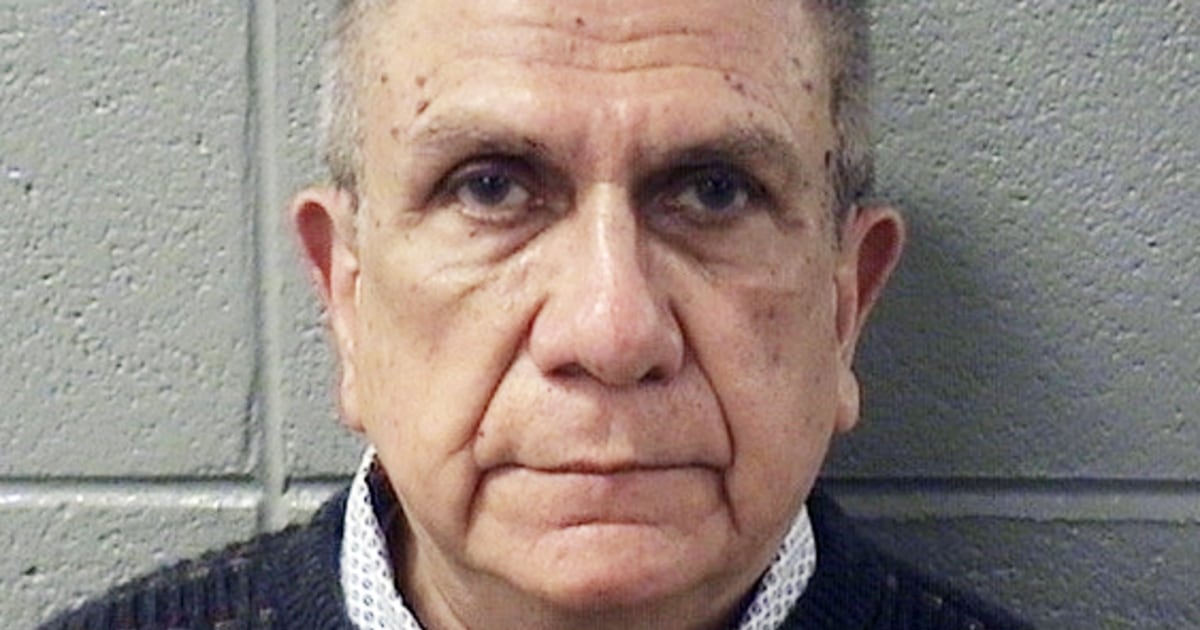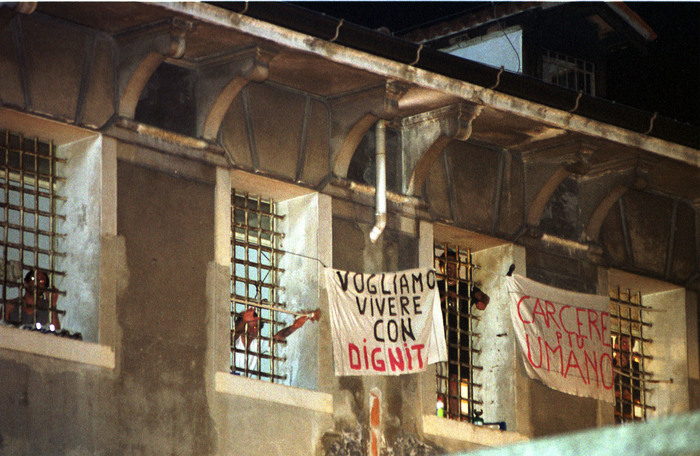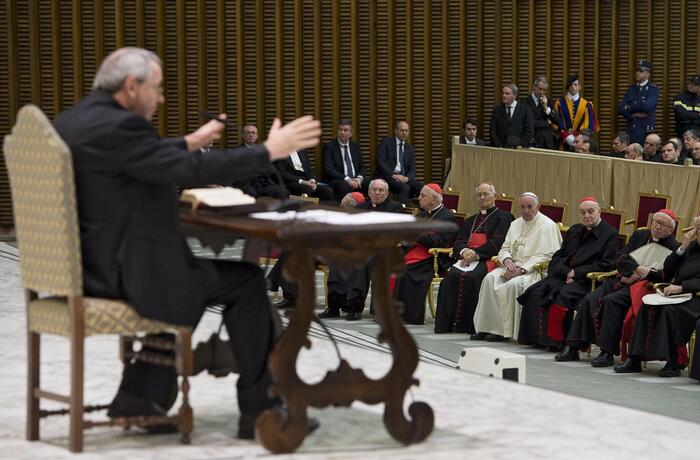The scene, which still leaves Thomas Lenz in doubt about the rule of law, takes about a minute. A camera took her then, on 16 June 2018, at 15 o'clock. Wuppertal, district Barmen, the four-lane road Höhne. Many passers-by, a lot of police. At the height of Geschwister-Scholl-Platz, the Höhne is closed to traffic, and right-wing demonstrators are about to pass by.
Lenz wears jeans, polo shirt and sweat jacket, he stands in the street and argues with a policeman. The upturned arms of the men are touching each other in the air. Lenz turns, towards the sidewalk, feels the hand of a second policeman in the back, turns around. Again a word exchange, the two faces are close. Suddenly the officer rips Lenz to the ground. Colleagues rush to help in no time. One pulls Lenz up the shirt and pinches it several times in the kidney area. Lenz is tied up and taken away.
The 60-year-old, a Grüner, heads the Jobcenter Wuppertal. And so the case quickly gets attention. The party friends in the city council speak of "ill treatment". The CDU Interior Minister introduces himself to his officials who promptly report Lenz. They wanted to clear the street. Lenz had resisted and attacked officials. Lenz filed charges for assault in office. Both procedures are still running.
THE MIRROR
Thrown over, beaten, tied up: Thomas Lenz
Barely 15 months later, he sits in his office at the job center in Barmen. The father of two grown children serves coffee, his voice sounds smoky. Still, he says, he can not believe what happened to him then. "Did I do anything wrong except say to the policeman, 'Please stop touching me all the time?'" He was already off the street when the policeman grabbed him.
A 20 centimeter long hematoma at kidney height attested to him at that time a doctor. For about three weeks he had had numbness in his hands because of the shackles. The violent use against him was "completely disproportionate". Even if you call your actions resistance, which he denies vehemently. On the floor he had resisted "zero".
Extensive study on police violence
Anyone who becomes a victim of police violence has a hard time in Germany if he acts against it. Approximately 2000 investigations are closing prosecutors annually against police officers on suspicion of assault in office. Only two percent of cases end up in court. Against this background, the Bochum criminologist Tobias Singelnstein has initiated a comprehensive study in which Thomas Lenz has also participated. Interim results are now available.
DPA
Police operation at the G20 summit in Hamburg (2017)
Udo Behrendes was a police officer for more than 40 years. Before retiring in 2015, he led the management team at the Cologne Police Headquarters. In the seventies, he drove patrol in Cologne, later led hundreds of police operations at demonstrations in North Rhine -Westphalia. The hurdles to punish police violence have always been high, says Behrendes. He calls two decisive reasons:
- 1. Illegal police violence is difficult to recognize: "The police may use force and must do so in many situations," says Behrendes. At a pub brawl, at a spanking husband, at attacks by extremists. Recognizing when a police officer exaggerates in the heat of battle is difficult. "On both sides are emotions in the game, fear, adrenaline." The boundaries between lawful coercion and exaggerated severity are "often fluid".
At the beginning of the 1990s, Behrendes says, he noticed a colleague at a Kurdendemo who "had a pretty good time". Only when later did the "Tagesthemen" scenes in close-up, he had the concrete misconduct recognized: The colleague had hit a Kurdin, who had long been under control, several times on the back. A punishment. Behrendes wrote an ad. - 2. Policemen must file a complaint - and that puts them in a dilemma: When a police officer strikes off the rails, mostly colleagues are witnesses. Unlike ordinary citizens, the law requires them to file a complaint immediately in order to avoid being punished themselves. A dilemma. "It's hard to say how I behave with a colleague who just helped me out of a tough situation, but overstated his efforts," says Behrendes.
Besides, every policeman knows his own mistakes. At the beginning of his career, Behrendes says, he has made a fugitive traffic offender - and missed him a slap. Because of "verbal provocations". A colleague saw that and said, "Did he deserve it?" That's it. "He should have reported me," says Behrendes. Had the offender gone to the prosecutor's office, the colleague would have had to lie in order not to burden himself. "And if the colleague had exaggerated another time, I would have had great inhibitions to report him."
word agains word
The criminologist Singelnstein knows this problem. "Policemen almost never say against each other," he said in 2018 in an interview with SPIEGEL. Often the word of the citizens stands against the word of the officials. As with Jakob Sentker * - a case that started in July two years ago.
By the time the gun exploded, it had been a normal night. With five friends Sentker celebrated in Kassel. They left the disco York in the early morning to buy a doner kebab. The group crossed a street - then a gun exploded. That was the point at which the matter became confusing.
more on the subject
One thing is certain: in the end, Jakob Sentker's left collarbone will be broken, he will have hematomas and skin abrasions. An aspirant of the Federal Police should have done this to him, he should have kicked Sentker, as the lay on the ground.
Three of his friends were also allegedly attacked by budding police officers, one had been pressed against the wall, a second slapped and a girlfriend bumped in the stomach. The public prosecutor's office is investigating three accused persons for dangerous bodily harm.
What about the Böller?
On one day in August 2019 Jakob Sentker takes a seat in a Berlin café. He is 21 years old, a slender economics student with soft facial features. He does not want to see his real name published. His father accompanies him.
Jakob Sentker says that after the Bollers explosion he was approached by two men posing as police officers. They accused him of detonating the gunman and asking him to show his ID.
He had denied the Böllerwurf and the men asked for their badges - but they had no, according to Sentker. One of them later took out his purse and displayed a sort of sheriff's star. Two friends sentkers confirm that.
It had come to a gaff, in the course of which one of the contenders Sentker brought to the ground and kicked at least once. Two friends sentkers confirm that he was kicked lying on the ground.
Brawl in front of the club
The police officers, however, describe the night in Kassel differently. They were also in York at eight o'clock and headed for the same snack booth at 4:50 am as Sentker and his friends.
On the way there, two of the police students want to see that Sentker set fire to a gun and threw him in the direction of a police patrol. The police patrol had been called to York for a brawl.
One of the two candidates had addressed Sentker, introduced himself as a trainee to the police. Sentker and a friend had loudly insulted the two and instigated other people to do likewise. It was then come to blows. One of the contenders admits having brought Sentker to the ground. He wanted to help a colleague.
Another contender says he has held back the alleged chief culprit to prevent further escalation. Another from the group of aspiring federal police admits to having accidentally hit a girl from Sentker's group. None of the eight police officers say anything about kicks against the student lying on the floor.
Fight for the fundamentals
Sentker says he did not attack any of the candidates; he had neither flogged nor insulted anyone. The day after the incident, seven of the eight candidates made statements at the behest of their group leader - before Sentker filed a lawsuit. The statements are consistent; sometimes even in the wording. A request of Der Spiegel for this left the defender of the alleged chief offender unanswered.
The thing Jakob Sentker does not let go. In January, he wrote a letter to the then Federal Minister of Justice Katarina Barley. It is his last hope for justice, it says. He fears that the public prosecutor's office Kassel stops the proceedings.
In Wuppertal Thomas Lenz deals with the basics. He was at that time with many members of the left cultural scene locally, as part of a Gegendemo. "The police are not masters in the country, they do not choose who to demonstrate," he says. He is experiencing an "uneasy feeling" when a police vehicle is next to him and wants to get rid of the feeling that a court case could help.









